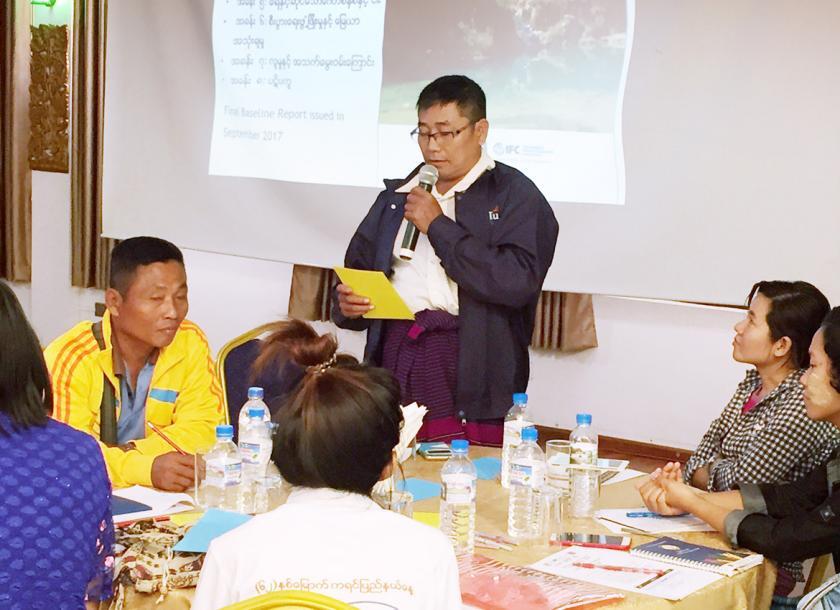Civil society is worried about the future of hydropower development. Concerns include protecting Myanmar’s mainstem of its key rivers; promoting environmental and social values of people that rely on river systems; reducing environmental and social risks; improving stakeholder engagement and accessing electricity.
Likewise, these are central values considered in the ongoing Strategic Environmental Assessment (SEA) of Myanmar’s hydropower sector, according to an International Finance Corporation (IFC) news release.
Over the past week and a half, IFC, Myanmar’s Ministry of Natural Resources and Environmental Conservation and the Ministry of Electricity have held stakeholder meetings in Myintkyina, Bago, Hpa-an and Taunggyi.
Meetings are planned early next month in Yangon and Nay Pyi Taw. Civil society organisations with diverse views were invited and attended. The SEA team received their comments in efforts to finalise the study that helps planners to make more informed decisions on the future of the hydropower.
At these meetings, stakeholders learned that the SEA recognises that Myanmar’s mainstem rivers such as the Thanlwin and Ayeyarwady are important to maintain their ecological connectivity and many of the rivers ecosystem functions and services which benefit communities living along the river.
The construction of hydropower would create barriers to the migration and movement of fish and other aquatic organisms, many of which are economically important.
Thirteen 13 civil society organisations attended the Strategic Environmental Assessment of Myanmar’s hydropower sector in Taunggyi, Shan State, on Monday.
Many of the participants were attending SEA stakeholder discussions for the third time. Groups that wanted to share their concerns, especially regarding large hydropower dam projects in Myanmar were invited to make their case. They did so, expressing the urgent need for inclusivity, transparency, respect for local conflict, and environmental protection. Discussion was engaged and active. All opinions and concerns were welcomed.
The SEA, with over 55 stakeholder meetings over the past year, aims to get as much feedback as possible.
As this is the first study focusing on environmental and social values of a specific sector, there is much room for improvement. We hope for the SEA to spur future more in-depth studies that engage local knowledge and help Myanmar develop electricity that is inclusive, sustainable and contributes to a healthy energy mix.
The SEA study is intended to give an overview of environmental and social concerns across the eight river basins and 58 sub-basins in Myanmar. It is not, and does not in any way replace, project-level studies where more concentrated stakeholder engagement with residents and environmental assessment is required.
It was clear from many of the discussions that technical terminology needs to be clarified: for example, SEA versus a project-level environmental impact assessment.
IFC is committed to building capacity of central, regional and state governments, as well as CSOs and other interested stakeholders to help clarify the different international tools available that can greatly assist the sector.
Source: http://bit.ly/2DhZPwl











